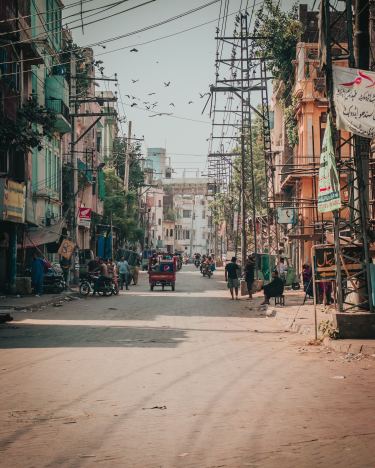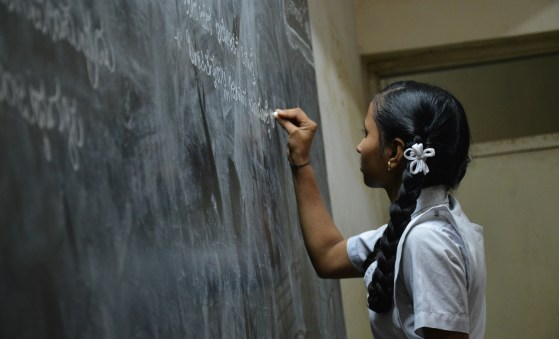
Allah Rakhi Bibi, the 72-year-old widow of Nazir Masih, died in Sargodha, Pakistan. On 21 June 2024. Her death came just weeks after her husband, Nazir Masih, who was killed by an angry mob. This sad story shows how religious violence can destroy families and communities.
Allah Rakhi Bibi was very upset after her husband's death. Her son, Sultan Gill, who lost both his parents in a month, told the White Post, “The loss of my father was difficult for her to digest. She was in shock and faced significant mental trauma and remained socially isolated after the attacks.” She left behind seven children - two sons and five daughters. She was buried next to her husband in Sargodha's local Gillwala graveyard.
The trouble started on 25 May 2024. Nazir Masih, a 74-year-old Christian man, was attacked by a mob in Mujahid Colony, Sargodha. People accused him of blasphemy, which means insulting religion. This charge is often wrongly used against religious minorities in Pakistan. The mob, including adults and children, threw stones at Masih and beat him badly.
He had worked hard to build his own business in Sargodha. On the day of the attack, an angry crowd gathered after hearing rumours about blasphemy. They attacked Masih with stones and sticks, even as he lay bleeding on the ground.
Even though the police tried to help, Masih was hurt very badly. The mob even damaged the ambulance that came to take him to the hospital. This made it harder to get him medical help quickly. Masih suffered serious head injuries, including skull fractures and blood clots in his brain.
He was taken to the Military Hospital in Rawalpindi. Doctors operated on his head and removed bone pieces from his brain. They said the first three days after the surgery were very important. Despite their best efforts, Nazir Masih succumbed to his injuries on 3 June 2024, in the hospital's Intensive Care Unit.
Many people in Pakistan and around the world were angry about this attack. Bishop Azad Marshall, the Moderator of the Church of Pakistan and Bishop of Lahore, condemned the attack and asked the country's leaders to do something to stop such violence on his X account.
He stated that “Today every single Pakistani should be weighed by grief… Yet again, hate has brought us to the place where we must ask questions… Being a minority justifies a mob being whipped up and lives being devastated and people being killed? Who whips up these mobs? Who pursues the many crimes that exist in one incident and who promises us that this will never happen again? No one! But today let us look to God for Justice, let us trust in His intervention and His divine hope. Our prayers are with the family of Nazir Masih (Lazar) and with the community in Sargodha. We lift our voices in lament, in regret, in solidarity and for an honest plea for justice. I urge our leaders and those who were brought to power for the sake of such a time as this, not to go silent and not to turn their faces away from this atrocity. Do something, say something. May the Lord have mercy on our land.”
The deaths of Nazir Masih made many people take action. On 20 June 2024, hundreds of Pakistani Christians protested at the European Parliament in Brussels. They wanted justice for Masih and his family. They also wanted the Pakistani government to make changes to protect religious minorities.
Joseph Jansen, a well-known activist, was upset that 52 people suspected of being in the mob were let out of jail. He said there was clear proof they were involved in the violence. Jansen also criticized the government for not doing enough to stop a religious group called Tehreek-e-Labbaik Pakistan (TLP). He believes this group encourages attacks on religious minorities.
The protesters asked for several things amongst these:
1. A fair investigation of the attack
2. Financial help and protection for Masih's family
3. New rules to stop people from encouraging violence in mosques
4. Faster court cases for similar attacks
5. Changes in laws to protect religious minorities
6. Safe places for people who might be attacked because of their religion
7. Looking into other similar incidents that happened in the past
8. Teaching people about respecting different religions
The attack also affected Masih's business. His shoe factory was destroyed, and his family was also attacked. This shows how such violence can ruin livelihoods and harm entire families.
The protesters in Brussels also asked for help from the international community. They want support in their fight for justice and in pushing for legal reforms in Pakistan. They believe that pressure from other countries might help convince the Pakistani government to take stronger action against religious violence.
The story of Nazir Masih and Allah Rakhi Bibi is a call for change. It shows the urgent need for Pakistan to protect its citizens, regardless of their religion. It also highlights the importance of education and dialogue to build a more tolerant society. Only through these efforts can Pakistan hope to prevent such tragedies in the future and ensure that all its citizens can live without fear of persecution.




